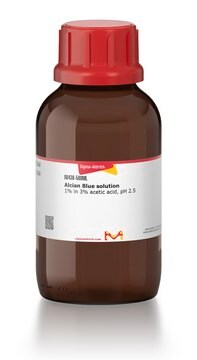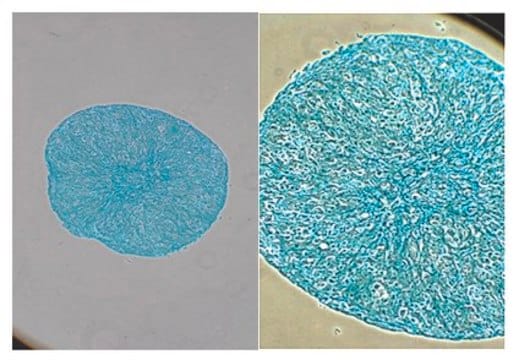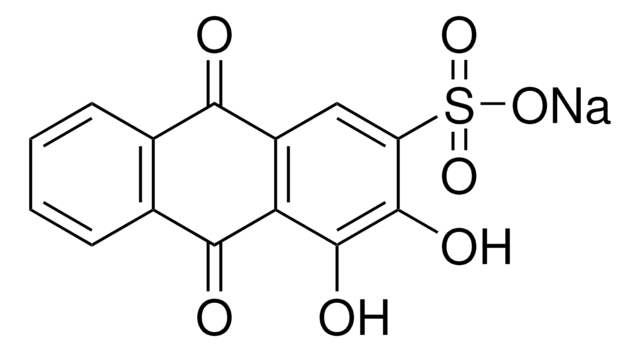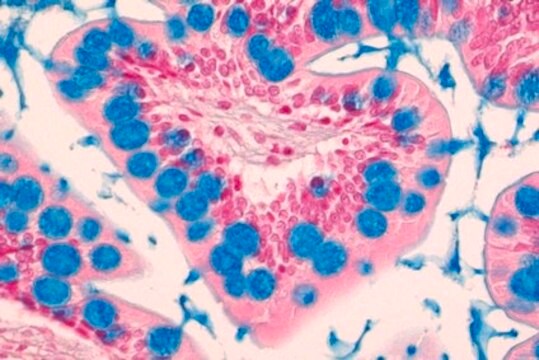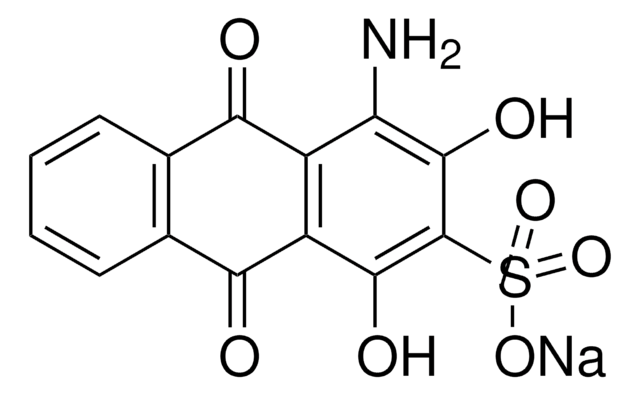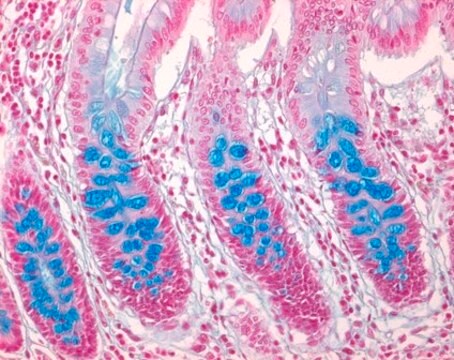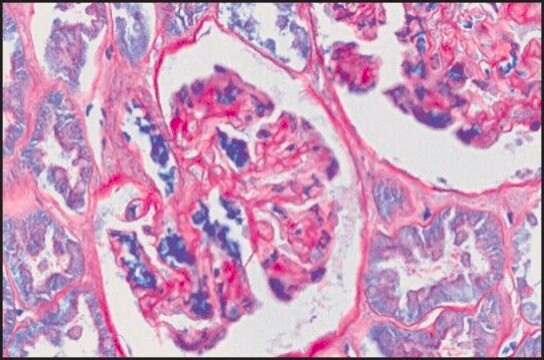66011
Alcianblue 8GX solution
for microscopy, 1% in solution (in 3% acetic acid)
About This Item
Recommended Products
grade
for microscopy
Quality Level
form
liquid
concentration
1% in solution (in 3% acetic acid)
technique(s)
microbe id | staining: suitable
density
0.996-1.016 g/cm3
ε (extinction coefficient)
2.4 at 619 nm in H2O
application(s)
diagnostic assay manufacturing
hematology
histology
storage temp.
2-8°C
room temp
InChI
1S/C56H68N16S4.4ClH.Cu/c1-65(2)53(66(3)4)73-29-33-17-21-37-41(25-33)49-57-45(37)62-50-43-27-35(31-75-55(69(9)10)70(11)12)19-23-39(43)47(59-50)64-52-44-28-36(32-76-56(71(13)14)72(15)16)20-24-40(44)48(60-52)63-51-42-26-34(18-22-38(42)46(58-51)61-49)30-74-54(67(5)6)68(7)8;;;;;/h17-28H,29-32H2,1-16H3;4*1H;/q+2;;;;;+2/p-4
InChI key
CKLBXIYTBHXJEH-UHFFFAOYSA-J
Related Categories
General description
Application
Analysis Note
Storage Class Code
10 - Combustible liquids
WGK
WGK 2
Flash Point(F)
Not applicable
Flash Point(C)
Not applicable
Choose from one of the most recent versions:
Already Own This Product?
Find documentation for the products that you have recently purchased in the Document Library.
Customers Also Viewed
Our team of scientists has experience in all areas of research including Life Science, Material Science, Chemical Synthesis, Chromatography, Analytical and many others.
Contact Technical Service
